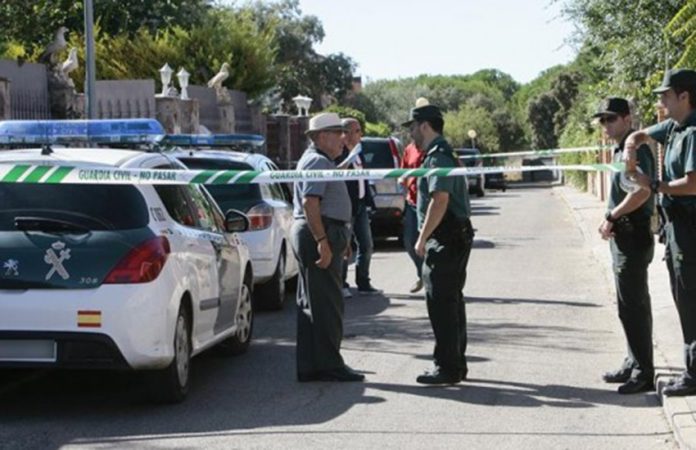Homicides declined 2.9% in the first five months of the year compared to the same period of 2020, Security Minister Rosa Rodríguez said Monday.
There were 14,243 homicides between January and May, 430 fewer than in the first five months of 2020, which was the second most violent year on record.
However, the number of homicides last month – 2,963 – was the highest monthly total since August 2020 and 1.3% higher than the figure for May last year, when 2,926 people were murdered.
Still, Rodríguez celebrated the decline during the first five months. “With regard to intentional homicides, we’re continuing to contain the upward trend,” she told reporters at President López Obrador’s morning news conference.
The security minister noted that 50.4% of all homicides in the period occurred in just six states: Guanajuato, Baja California, Jalisco, México state, Michoacán and Chihuahua.
Guanajuato, where several criminal groups including the Jalisco New Generation Cartel and the Santa Rosa de Lima Cartel are engaged in turf wars, recorded 1,545 homicides between January and May, or 11% of the national total.
But Rodríguez emphasized that the murder rate is declining in the Bajío region state, having dropped 18.8% annually in the first five months. She attributed the decline to security operations carried out by the army and the National Guard on the instructions of the president.
Baja California ranked as the second most violent state between January and May with 1,341 homicides followed by Jalisco (1,095); México state (1,084); Michoacán (1,084); and Chihuahua (1,027). Rounding out the top 10 most violent states so far this year were Sonora, Zacatecas, Veracruz and Guerrero.
Nine states recorded fewer than 100 homicides between January and May. They are Nayarit (96); Querétaro (92); Durango (81); Coahuila (65); Tlaxcala (52); Campeche (40); Aguascalientes (31); Baja California Sur (26); and Yucatán (18), which has long been considered Mexico’s safest state.
While homicides declined, femicides – the killing of women and girls on account of their gender – increased 7% to 423. There were 98 femicides last month, a 25.6% increase compared to April.
Among the other crimes that increased between January and May were muggings (up 6.4% compared to the same period last year); rape (up 30%); human trafficking (up 47%); and drug trafficking (up 8%).
![]()
Among the crimes that declined were vehicle theft (down 14.7%); business robberies (down 10.6%); home burglaries (down 6.8%); kidnappings (down 28.8%); and federal firearms offenses (down 5.5%).
Rodríguez also said that the Finance Ministry’s Financial Intelligence Unit has blocked more than 38,000 bank accounts linked to crime since the current government took office in late 2018. The government has seized more than 14.4 billion pesos (US $702.8 million) from those accounts, she said.
For his part, National Guard Commander Luis Rodríguez Bucio said that just under 100,000 guardsmen are now deployed to 214 security regions across the country.
The new security force was established by the current government and officially inaugurated by López Obrador in June 2019.
The president had high hopes that the National Guard would help to reduce violent crime but his first full year in office – 2019 – was the most violent year on record and homicides declined only 0.4% last year.
Apparently conceding that the security force had failed in its mission to reduce violence, López Obrador published a decree just over a year ago that ordered the armed forces to continue carrying out public security tasks for another four years.
Last week he proposed incorporating the National Guard into the army toward the end of his six-year term, a plan described as “madness” by National Action Party Senator Julen Rementería, who asserted that the president is attempting to “completely militarize” public security.
Mexico News Daily
